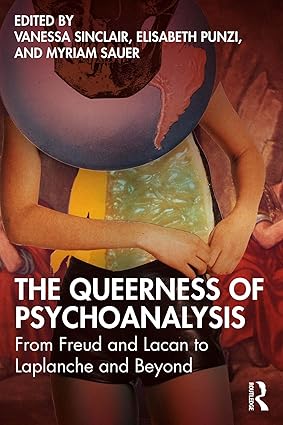

Most ebook files are in PDF format, so you can easily read them using various software such as Foxit Reader or directly on the Google Chrome browser.
Some ebook files are released by publishers in other formats such as .awz, .mobi, .epub, .fb2, etc. You may need to install specific software to read these formats on mobile/PC, such as Calibre.
Please read the tutorial at this link: https://ebookbell.com/faq
We offer FREE conversion to the popular formats you request; however, this may take some time. Therefore, right after payment, please email us, and we will try to provide the service as quickly as possible.
For some exceptional file formats or broken links (if any), please refrain from opening any disputes. Instead, email us first, and we will try to assist within a maximum of 6 hours.
EbookBell Team

4.8
94 reviewsThroughout the chapters, the contributors write about psychoanalysis’ relationship with queerness, the ways in which queerness is represented in the psychoanalytic archive, and how that archive endures in the present and creates various disruptive effects both within and beyond the clinic. Each chapter from the global cohort of contributors approaches queerness from a different angle: they consider the literary aspects of queerness’ presence in the analytic world; the clinical complexities of working with queer and trans people; metapsychological inclusion and exclusion of queerness, and many other subjects. Taken together these contributions constitute a decisive intervention into the psychoanalytic canon. They are an unabashed demand for accepting and furthering the representation and inclusion of queer, and in particular trans, people within psychoanalysis. It is a call for action to utilize and deepen psychoanalysis’ enormous explicatory powers and bring together voices that have so far been denied a unity of expression, while critically reevaluating psychoanalysis’ historical relationship to queerness. Each chapter proposes different ways of thinking and writing psychoanalytically, with many of the papers queering the format and forms of expression commonly found in academic writing, through their use of dialogues, conversations, or other experimental forms of writing.
Written almost exclusively by analysts, scholars, and activists who identify as trans and/or queer, this important volume puts theory into practice by centering queer and trans voices.